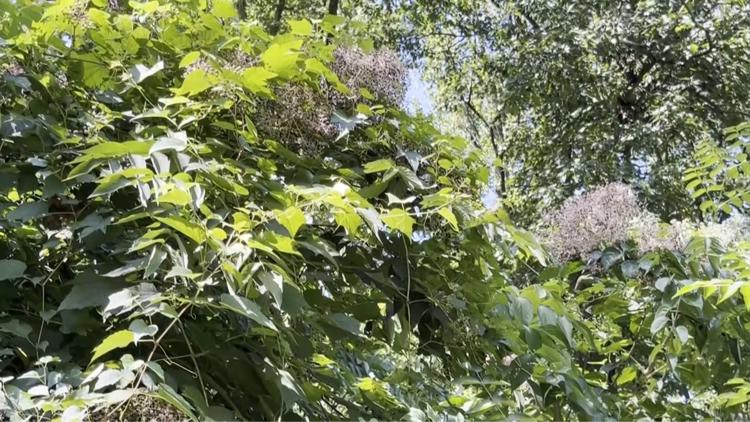WASHINGTON — A National Park Service plan to restore the historic Rock Creek Park Golf Course was given the green light on Thursday amid opposition from environmental activists and concerned residents.
Part of the restoration plan includes the cutting of at least 1,000 trees and replanting of as many as 2,100 on 7.1 acres in an effort to restore the dilapidated course near the intersection of 16th Street Northwest and Military Road Northwest.
The plan had nearly unanimous support in Thursday's vote.
Opponents of the project say that the planned tree cutting will disrupt wildlife and the restored trees will not grow to maturity for decades, resulting in a dramatically changed environment in the early years after the project.
Activists protested the Rock Creek Park Golf Course plan on Tuesday.
“Rock Creek Park is an ecosystem where each species sustains the other," one protester said.
The Sierra Club was among the groups shocked by the scale of the tree cutting plan, which includes the destruction of hundreds of mature, healthy, native trees, in addition to large numbers of invasive and diseased trees.
The course has suffered from decades of neglect and deferred maintenance, according to Michael Stachowicz, a project manager for the National Park Service, which has been working on a restoration solution since 2016.
Stachowicz said that the plan would reduce the overall area of park dedicated to golf, replant more trees than will be cut, and create 12.7 acres of ecological meadow habitat which currently does not exist.
“We think that this is the best balance," Stachowicz said Tuesday. "We have to take care of the historic resource and we have to take care of the natural resource."
Stachowicz added that the parks founding documents designate the park as a recreational as well as a natural resource. Golf on the site dates back to 1909.
The current course was built in 1927 and is on the National Register of Historic Places.
"These golf courses are a community hub, and it is important. They're affordable. They have a great history to them," Stachowicz said.
The National Park Service sought approval from the National Capital Planning Commission, which held a public hearing on the issue Thursday. Not everyone agreed with the plan.
“One thing is really clear – do not cut trees at this moment in time. It is ludicrous negligent and dangerous to cut trees, especially to cut trees for the sake of golf. A recalibration of the balance between environmental conservation and historic conservation is necessary,” one concerned resident said during Thursday's public comment period. “Trees help reduce greenhouse gases in the atmosphere, they regulate the temperature – help keep it cooler. Trees provide habitat for wildlife preserving species and ecological diversity. Obviously we need more trees, not less. This is the time to protect trees, not destroy them. There is no time to cut trees and wait and hope – cross our fingers for the new planted trees to grow.”
Still, the plan passed with 11 votes in support and one abstention by Commissioner Chelsea Davis.
The National Park Service selected the nonprofit National Links Trust as a concessionaire to redevelop and operate the course for the next 50 years.
"National Links Trust is a nonprofit organization dedicated to positively impacting our community and changing lives through affordable and accessible municipal golf," the NLT's website says. "Our vision is to be known as the leading advocate and resource for municipal golf across the United States."
The NLT's first projects are the restoration of D.C.'s historic municipal golf courses at East Potomac, Langston and Rock Creek Park, said Mike McCartin, co-founder of NLT.
"We're going to plant more acreage of trees than we're going to remove. So in the long term, as we think about the next 50 years of our lease, were actually going to end up with more tree canopy," McCartin said.
NLT documents say there will be a significant reduction in soil erosion and sediment run-off into Rock Creek through rain gardens, healthy turf coverage, meadow grasses, and other stormwater management techniques, after the redevelopment.



